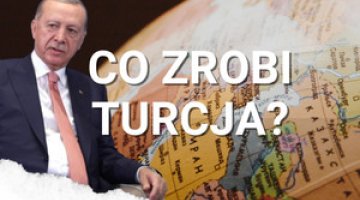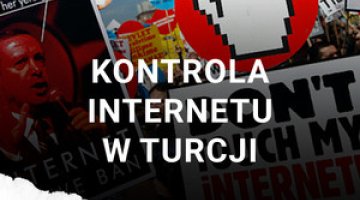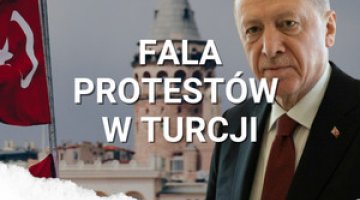Tough decisions for Turkey in the war against Islamic State
The crisis in Syria, in particular the expansion of Islamic State (IS) and air strikes on IS bases by the anti-terrorist coalition, are having an ever stronger impact on Turkey’s regional and internal security policy. Turkey is not taking part in the air operation, but defined the terms of its membership in the coalition at the beginning of October. Turkey wants the coalition to redefine its goals so that the operation is no longer targeted against Islamic State alone but is instead aimed at comprehensively resolving the Syrian issue (i.e. by defining Bashar Al-Assad’s regime as a target and the Syrian opposition as a partner), and will in practice also enable Turkey to seriously intensify its activity in the Middle East. Turkey’s passive stance with regard to Syria (the clashes in Kobane) has led to enormous internal tension (riots and clashes with Kurds). Turkey hopes that the relative ineffectiveness of the operation against Islamic State will make Washington more inclined to accept at least some of Turkey’s conditions in the longer term. Furthermore, it appears unlikely that Ankara will yield under Kurdish pressure.
Turkey’s stance on Islamic State
Turkey’s policy with regard to the Islamic State of Iraq and the Levant (ISIS or ISIL, later renamed Islamic State) has been ambivalent since the outset. On the one hand it has viewed this jihadist organisation as a potential threat. On the other hand, it has contributed to its expansion. Although there is no evidence that Turkey has actively supported ISIS, it is clear that Ankara has tolerated the transit of militants to Syria via Turkish territory since the outbreak of the Syrian war (Turkey is the main through route for militants there) and has allowed itself to be treated as a support base for the battles in Syria (for example, by allowing militants to be treated at Turkish hospitals). Ankara was passive because it saw ISIS as an instrument that could be used to fight Assad and weaken the Kurds, who had formed an autonomy governed by PYD, a local branch of the PKK, in northern Syria (Rojava). The law enforcement agencies have also found it difficult to identify potential militants arriving in Turkey and to distinguish them from the anti-Assad opposition.
Last year Turkey began to view ISIS as a growing threat. This organisation became a strong, uncontrollable and extremely brutal regional actor whose goals go far beyond fighting the Assad regime and provide for changing the balance of power in the Middle East as a whole and are fundamentally different from Turkey’s interests. Turkey has became more concerned especially after the terrorists took hostages at the Turkish consulate in Mosul in June this year and after the sudden territorial expansion in Iraq and Syria and the proclamation of the Islamic State.
Turkey has limited the possibilities it has of defending itself against IS. The most likely reason that IS has not yet waged war on Turkey is because it takes advantage of Turkey’s neutrality. Numerous IS militants and supporters are present in Turkey, especially in the south east,but also in cities like Istanbul and Ankara. They are also able to enter Turkey from Syria without major restrictions. Between several hundred and several thousand Turkish citizens are IS militants. All this offers the terrorists a broad range of possibilities to take retaliatory action if Ankara adopts a hostile policy.
At the same time, more and more pressure is being put on Turkey, mainly by the West (especially the USA) and Iraqi, Syrian and Turkish Kurds, to join the struggle against IS. It appears that Turkey has intensified its ‘soft’ actions aimed at reducing the room for manoeuvre for IS in Turkey and the region (by introducing stricter border checks and intelligence co-operation), while taking care not to cross a line after which IS would be provoked to launch open war against Turkey.
The US campaign as seen from Ankara
The US-led military campaign against IS has given rise to dilemmas in Turkey. On the one hand, this is an opportunity since the West is assuming greater responsibility for the situation in the region, which Turkey has been appealing for since the beginning of the war in Syria. In Turkey’s opinion, the US military potential is capable of having a stabilising effect on the region, if used adequately. This gives hope that the potential of Islamic State, which poses a threat to Turkey, will be reduced. At the same time, Ankara sees no need to take the political responsibility for confronting IS, since other states are doing this.
On the other hand, this campaign poses a number of threats to Ankara. Firstly, the goals of the US-led operation are not fully compatible with Turkey’s goals; Ankara would like priority be given to fighting the Assad regime than to liquidating IS. Secondly, Ankara believes that an operation limited to air strikes has little chance of success. In the worst-case scenario, this could even lead to terrorists fleeing to Turkey. Ankara also fears that the anti-terrorist operation will not only strengthen Assad and Rojava, but may even mark the beginning of their co-operation with the West. Furthermore, the USA is placing increasing pressure on Turkey to join the struggle against IS, thus forcing Ankara to define its standpoint. This alone can be dangerous: by consenting to participate in the campaign this would mean waging war on its dangerous enemy. In turn, refusal would deal a blow to its alliance with the West and would expose Turkey to the risk of ostracism and regional isolation.
Ankara has maintained a neutral stance on the operation so far; refusing to participate in it “as a mercenary” serving the interests of others. It has thus not taken part in the air strikes, has not provided the USA with access to its airports, has not offered military support to Kurds from Kobane and has been blocking access to reinforcements from the PKK.
What is Turkey up to?
Turkey has been making attempts to resolve these dilemmas by convincing the USA to redefine its goals and methods used during the Syrian campaign. Firstly, its main goal should be the abolition of the Assad regime. In Turkey’s view, Assad regime is a source of destabilisation in the region, is responsible for the humanitarian catastrophe and its activity creates fertile soil for the emergence of such actors as Islamic State. Secondly, Ankara has been appealing for stronger support to be offered to Syrians fighting Assad. This support would include training and the supply of arms from the West, including in Turkey. Thirdly, it firmly insists on a buffer zone and a no-fly zone to be established in northern Syria. This would create a safe space for anti-Assad opposition, provide shelter to internal refugees and also for Syrian refugees who have been coming to Turkey over the past few years (around 1.5 million of them are now residing in Turkey).
It appears that Ankara believes that if these demands are fulfilled, the problems and threats linked to the collapse of the Middle Eastern order will be thrust back far from its southern borders. This would reduce the problem with refugees, whose presence is causing Turkey ever more trouble. Fulfilment of this plan could probably reduce the threat posed by IS; and the main burden of fighting the jihadists would be assumed by an insurgent army which would have been armed and trained by the West and Turkey, with air support from the US-led coalition. Turkey sees this scenario as an excellent opportunity to gain a broad spectrum of possibilities to influence the situation in Syria without taking the risk of direct confrontation with either Assad’s forces or Islamic State. In Turkey’s opinion, its participation is necessary if IS is to be eliminated. Ankara believes this significantly strengthens her negotiating position during negotiations with the USA, which adds to her assertiveness in talks.
The internal situation
Turkey’s policy and the situation in the region have provoked a sudden breakout of internal tension between people of different ethnic backgrounds and of different views in Turkey; this tension had been mitigated over the past year. Ankara’s failure to respond to appeals for assistance to Kobane gave rise to a wave of protests and riots in more than ten cities (predominantly in the eastern and southern parts of the country, and also in large metropolises in western Turkey such as Istanbul, Ankara and Izmir). Around forty people were killed during the riots, including two high-ranking police officers who were attacked by Kurdish guerrilla forces in Bingol. Young Kurdish supporters of the PKK are predominant among the demonstrators protesting against Turkey’s ambivalent policy on IS and the jihadist attack on Kobane. Representatives of the Kurdish religious community who are opposed to the PKK and backed by the government are also present among the protesters. In turn, in Gaziantep, which was scene of one of the worst riots in the country and is the only city in south-eastern Turkey to be inhabited by a Turkish ethnic majority, the riots were instigated first of all by Turkish nationalists protesting against the Kurdish national movement (in the form of the PKK) and the influx of Arab refugees from Syria. The fact that the riots have temporarily subsided does not mean that the problem has been resolved, especially given the fact that the government’s response to this has been limited to a confrontational policy, terse rhetoric and to launching military action against the PKK in Turkey (the first bombardments of PKK targets since the launch of the peace process in early 2013).
Despite the protests which have been breaking out, Ankara has not provided support to Kobane and is sticking to its terms of engagement in the war in Syria. This is proof of its determination. It is thus likely that it will continue this policy in the immediate future, regardless of the temporary social and political costs.
Possible developments
Turkey is likely to continue its efforts to impose on the United States its terms regarding participation in the coalition. This would mean changing the nature of the mission from an anti-terrorist operation into a more extensive operation aimed at comprehensively regulating the situation in Syria. As understood by Turkey, this operation would have to include the elimination of Assad’s regime. It is unlikely that Ankara will join the coalition unless its demands are fulfilled.
It is highly probable that Ankara’s policy and a further destabilisation of the region will stimulate tension among the Turkish public, especially among Kurds. This poses a serious threat to the ongoing peace process. However, it seems that Turkey will continue its policy even at the expense of internal instability.
However, Ankara will hedge against possible tension with Washington resulting from their different perceptions of Islamic State through discreet co-operation in reducing the potential of IS. However Ankara will try to carry out these measures in a way that will reduce a possibility of provoking the jihadists to wage open war against Turkey.





